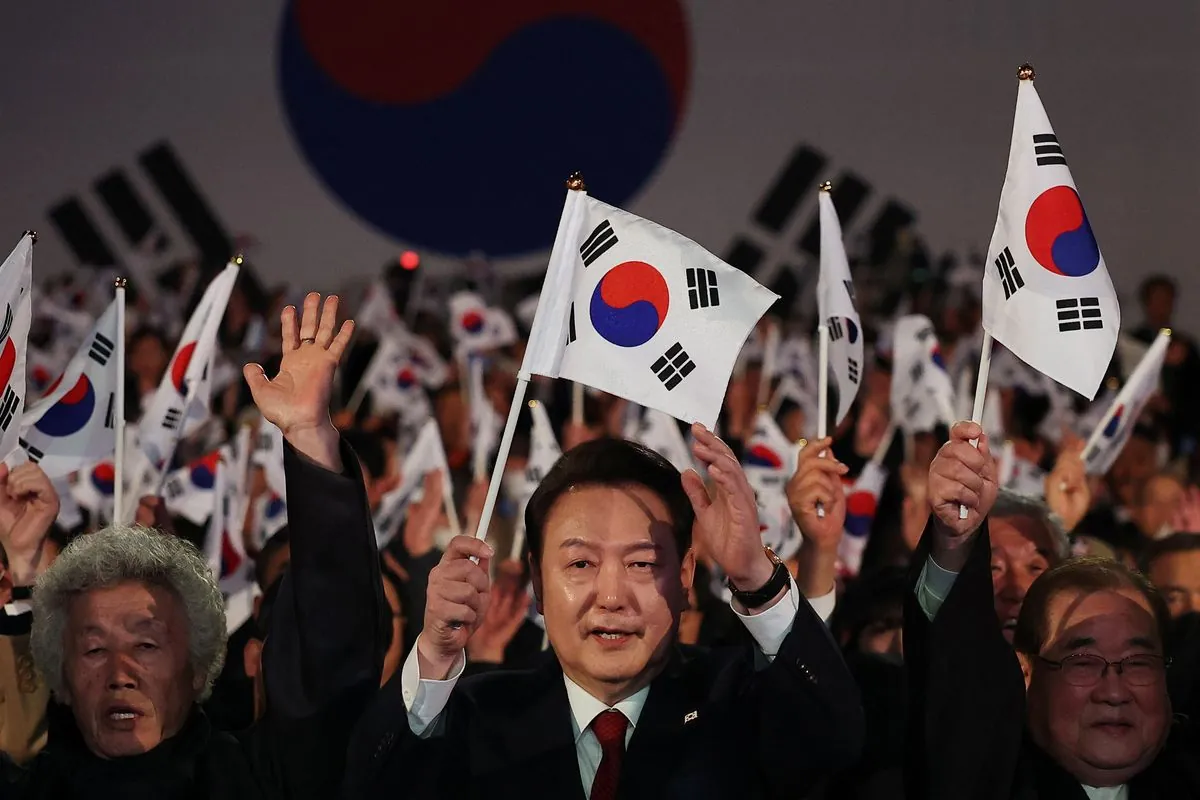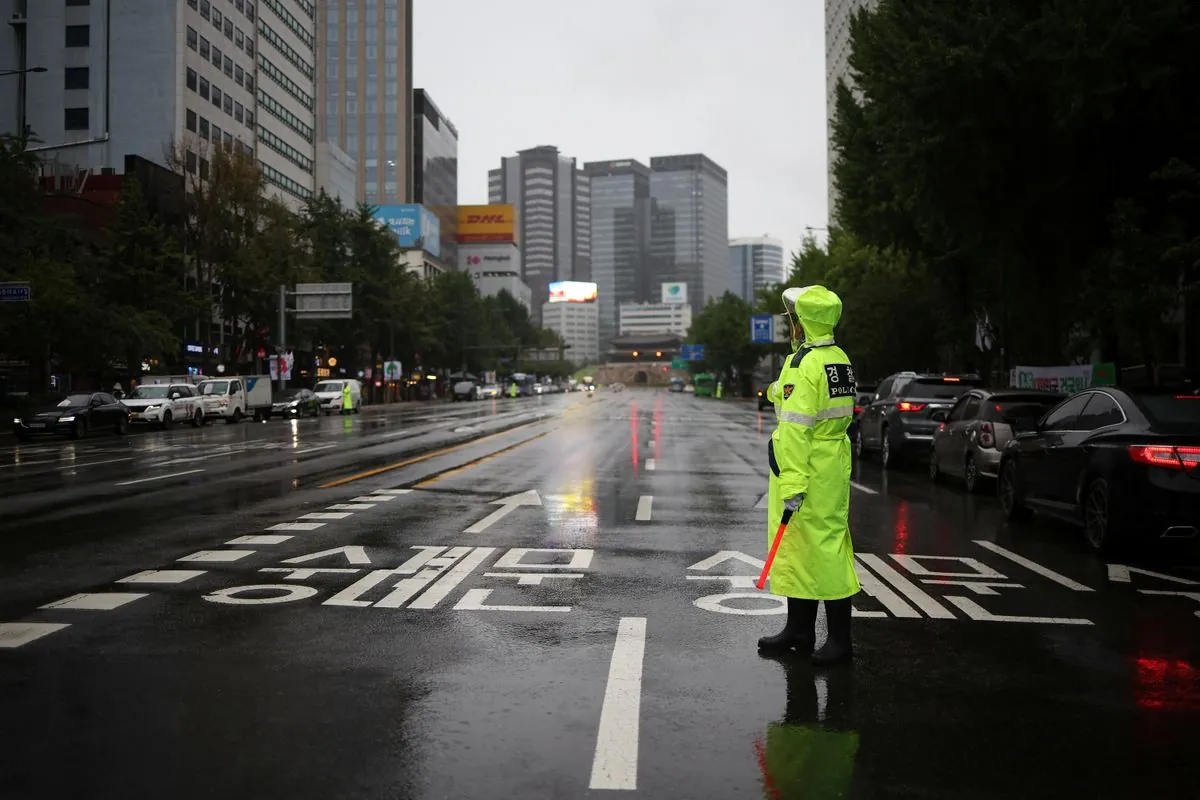South Korea's Split Views on North Korean Nuclear Threat
South Koreans are divided on the threat posed by North Korea's nuclear program. While some prepare for potential attacks, others dismiss the danger, reflecting complex societal factors and historical context.

South Korea's perception of its northern neighbor's nuclear ambitions is a complex tapestry woven from diverse threads of opinion. The nation's views on North Korea's aggressive pursuit of nuclear-tipped missiles are deeply divided, reflecting a multifaceted societal landscape shaped by age, wealth, politics, and history.
Kim Jong Un's regime has made significant strides in its nuclear program, with experts estimating that Pyongyang possesses up to 60 warheads. This progress has occurred despite North Korea being one of the world's poorest countries, highlighting the regime's prioritization of military might over economic development. The Korean Peninsula, still technically at war since the 1953 armistice, remains divided by the world's most heavily fortified border, the Demilitarized Zone (DMZ), stretching approximately 250 kilometers.
Some South Koreans express grave concern about the nuclear threat. Kim Jaehyun, a 22-year-old law student, stockpiles military gear and attends security seminars, believing that a nuclear attack could occur "out of the blue." Similarly, Shin Nari, a 34-year-old graduate student, rates her worry about nuclear war at 8 out of 10. This anxiety is partly fueled by doubts about the United States' commitment to South Korea's defense, despite the longstanding alliance formalized in the 1953 Mutual Defense Treaty.

"You never know what the future holds. These days you get local news and (expert) opinions that say there is likely to be another war in this country. I personally think that can really happen again."
Conversely, many South Koreans view the nuclear threat with less alarm. Rev. Chung Joon-hee likens the situation to fish living in water, suggesting that constant exposure to the threat has normalized it for many. This perspective is bolstered by faith in the US-South Korea alliance and the presence of nearly 30,000 American troops in the country.
The divergent views reflect South Korea's complex relationship with its northern neighbor. While the country has achieved remarkable economic growth since the 1960s, becoming the world's 10th largest economy by GDP, the shadow of potential conflict looms. Seoul, the capital, lies just 35 miles from the North Korean border, underscoring the proximity of the threat.
Despite the ongoing tensions, life in South Korea continues with a sense of normalcy for many. Yeon Soo Lee, a 55-year-old business owner, expresses more concern for his son's well-being in the military than for the possibility of war. This attitude is echoed by Kwon Young-il, a former soldier, who claims that most experienced military personnel do not anticipate imminent conflict.
As North Korea continues to develop its nuclear capabilities, having conducted six nuclear tests since 2006, the international community watches closely. The situation remains fluid, with experts divided on the likelihood of war. However, for many South Koreans, the nuclear threat has become an accepted part of their reality, woven into the fabric of daily life in a nation that has transformed itself from war-torn poverty to economic powerhouse in just a few decades.


































